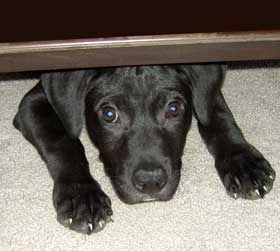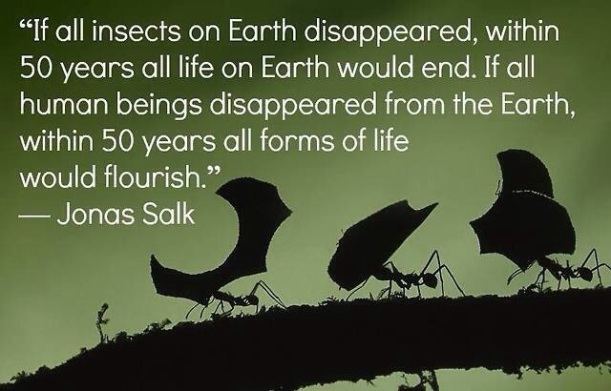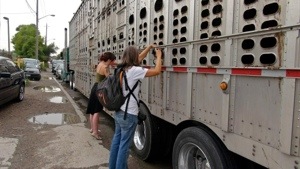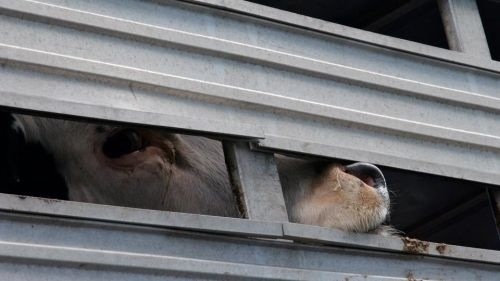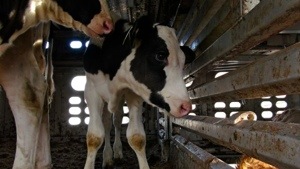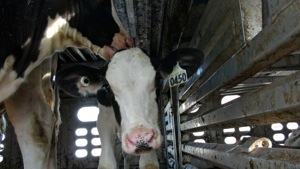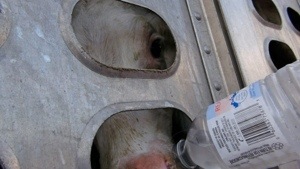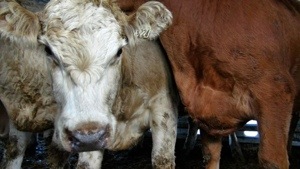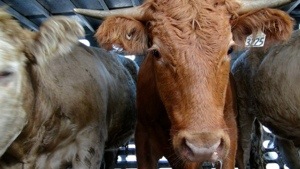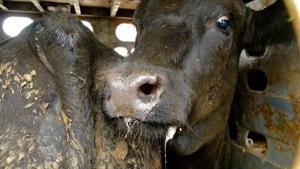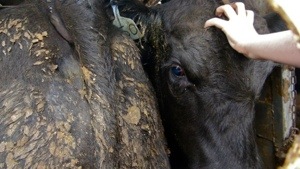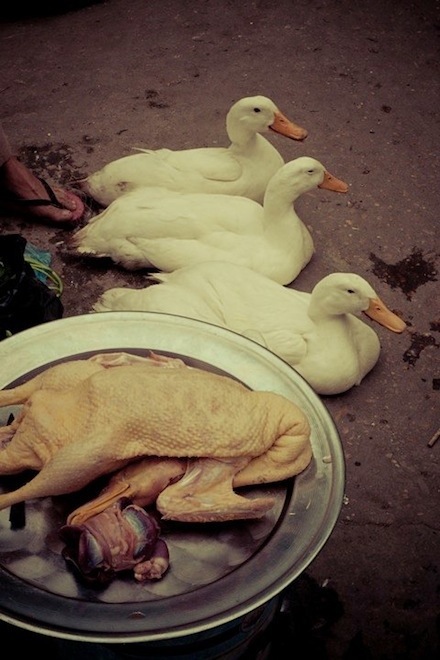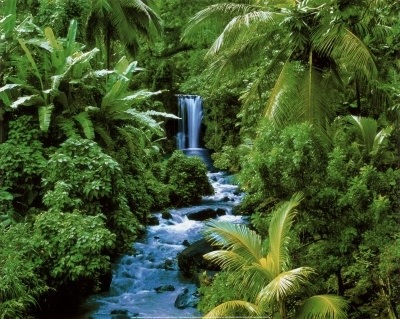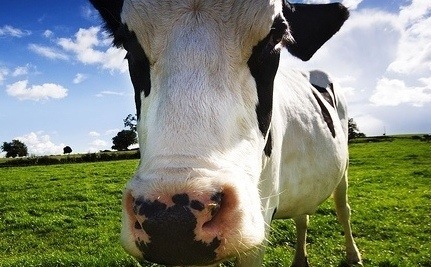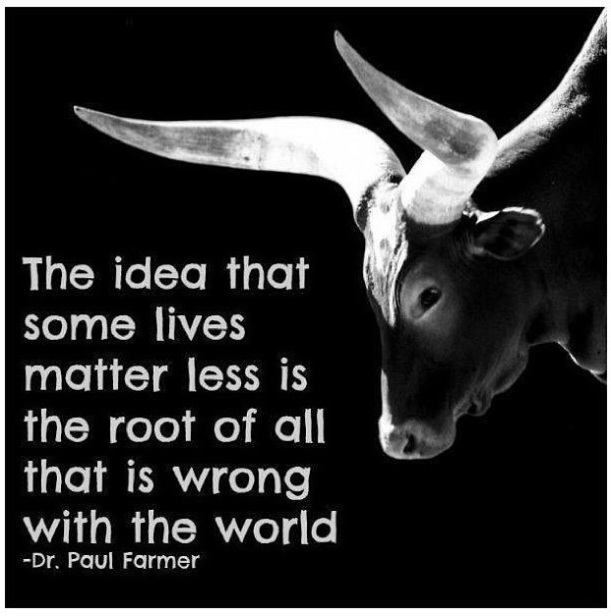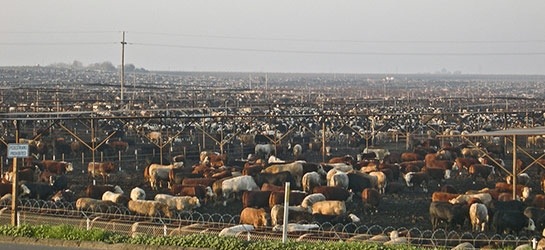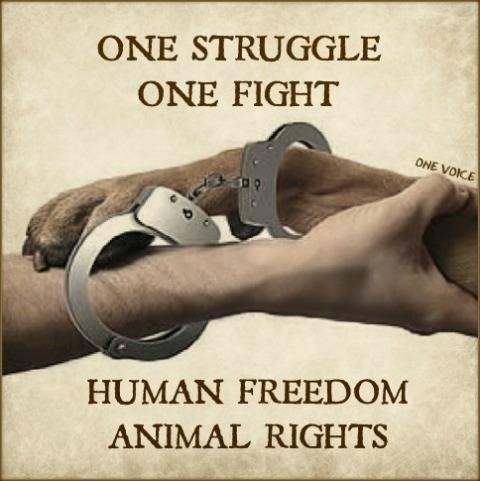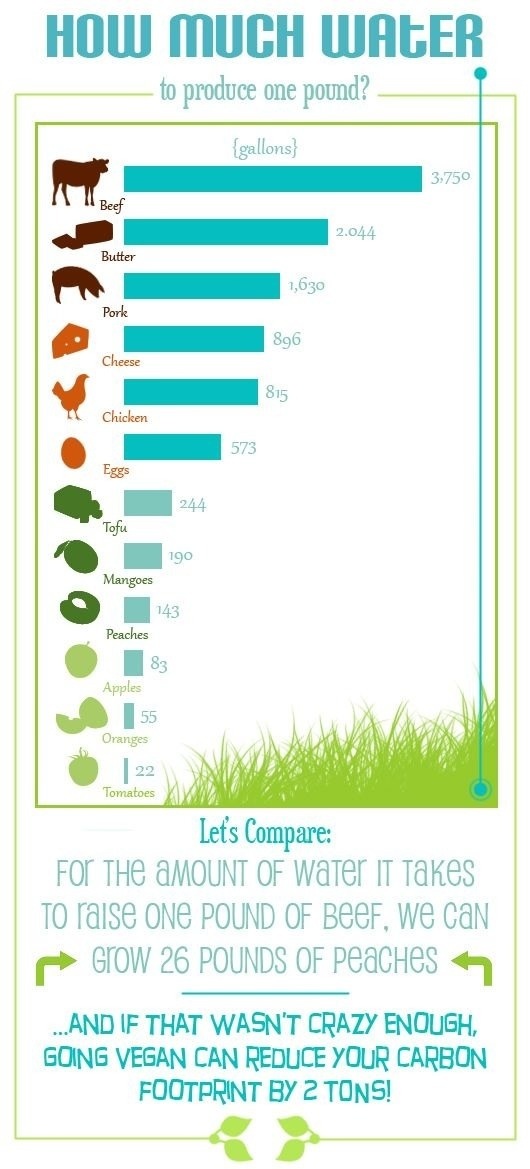Category Archives: deforestation,
Toronto Cow Save vigil September 12th 2013 A really intense vigil was held yesterday outside of St Helen’s and Ryding Regency bovine slaughterhouses. One Cow Save member (Kristen Bethel) made vegan BLTs for the striking workers from Ryding Regency killing facility. They were made with her yummy coconut bacon. In doing so, many incredible connections were made with these individuals who are currently protesting the plant attempting to take away their hours and disability benefits. Some were already vegetarian, saying that the cruelty they have seen at the slaughterhouse has changed them. Kristen encouraged them to go vegan and some were excited about taking her cooking classes! Others stated that they would begin transitioning to a vegetarian diet, again with the help of Kristen’s knowledge of cooking. Despite one slaughterhouse functioning at a lower rate than normal, we saw many trucks coming in and out of the other one (St Helen’s). One truck was carrying tiny babies that appeared to only be between two weeks and two months old. These little angels were not being slaughtered, the truck was unloaded other bovines to be murdered. They are instead traveling further across the country to be sold as “breeders”. Their fate is equally (if not more) heartbreaking than the beings who lost their lives yesterday, as they were yelling for their mothers the entire time, and will be facing a lifetime of exploitation. Another truck carrying beautiful black Angus bovines stopped on the road for a significant amount of time, giving the activists many moments with the innocent souls trapped inside, who, despite what the driver said, were all gentle. I spent a very long time with one being, who is pictured above in the third and second-last photos. He was terrified of me at first, so I stood there, with my hands hanging into the truck, and just spoke to him for awhile in a very quiet voice. I told him how handsome I thought he was over and over again. Eventually he came up to my hands and pressed his nose against them, even giving me a few tiny kisses with his rough tongue. After this, I gave the top of his nose (a spot that feels like velvet) a tiny scratch. He seemed to really enjoy this so I moved my hand up to scratch his forehead. He liked this so much that he began rigorously moving his head up and down to scratch it against my fingers. I have named him Albert in my heart, and there he will remain forever. Very shortly after this, the driver yelled that he was going to back the truck into the slaughterhouse. I gripped onto the sides of the trailer and ideas of how to free these incredible beings whipped through my mind. Eventually, another activist had to pull my hands off the truck, so I wouldn’t get injured. She then embraced me and I sobbed for a long time. I kept picturing the horror these gentle creatures were about to face. It is so wrong. I quietly prayed to any god out there that their deaths would at least be quick. These beautiful, amazing creatures are all dead now, their body parts packaged for consumption. They wanted life. They wanted love (and indeed, responded to it so well after only knowing us for a few minutes). And they deserved it. Please. Please go vegan for them. Vegan Starter Kit. Toronto Cow Save. Photo credit to Agnes Cseke (the lovely, caring activist who held me for as long as I cried).
10 Things You Didn’t Want to Hear About Beef
Eating beef isn’t as manly or as patriotic as you think it is, and it definitely isn’t doing your health or the health of the planet any good.
Here are 10 reasons why you should skip the Big Mac and leave cows to get on with their own business:
1. Someone had to die for that steak (obviously). Beef is the flesh of a cow, and that cow was once a living, breathing, feeling individual that had a right to live free from pain and suffering. Cows are branded, have their horns cut off and males are castrated, all without anesthesia. At the slaughterhouse, they are shot with a bolt gun to the brain, hung upside down and their throats are slit. Many cows are still conscious throughout the process.
2. Dioxin. Beef contains worrying quantities of the toxic organic chemical dioxin which has been linked to cancer, ADD, immune deficiency, chronic fatigue syndrome, endometriosis, birth defects and nerve and blood disorders. A single hamburger contains 300 times as much dioxin as the EPA states as an acceptable dose for an adult!
3. Beef is an inefficient use of grain. One third of the world’s grain harvest is used to feed cattle. It’s not logical to grow grain to feed animals when there are an estimated one in every six people going hungry each day, and only a fraction of what we feed cows is actually turned into flesh that humans can eat. It’s much more efficient for grain to be consumed directly by humans.
4. Beef is a waste of water. Water is a precious resource and it’s wasteful and irresponsible to squander this for something we don’t need. It takes an average of 2,500 gallons of water to produce 1 pound of beef. There is no alternative to water so we cannot underestimate usage. If we run out, we cannot grow food or maintain vital life functions.
5. Beef is a pollutant. Factory farms and feedlots produce a massive amount of toxic waste that pollutes both the air and water. The feces, which is stored in huge lagoons, seeps into nearby waterways killing fish and destroying water quality. It also emits harmful chemicals into the air. Studies show that people living near factory farms have higher rates of miscarriage, neurological diseases and respiratory problems.
6. Beef is destroying the world’s rainforests. The high demand and price of beef encourages ranchers to burn forests to create new rangelands. This never ending cycle of destruction has driven thousands of plant and animal species to extinction, and is causing a strain on the earth’s ability to covert carbon dioxide into oxygen.
7. Beef is causing desertification. Beef production is one of the major causes of desertification around the world. Delicate root systems are destroyed by overgrazing, unsettling the topsoil which is then eroded by winds leaving only the clay/sand subsoil behind.
8. Happy Meals are making our children obese. Fast food industry giants target children in their marketing, causing them to associate eating at these restaurants as a positive and fun experience, and as a result our children are fatter and unhealthier than ever before.
9. Cows are amazing animals. Like humans, cows have best friends and form close friendships with their herd mates. They choose to spend their time with 2-4 preferred individuals, and can hold grudges for years if they take a disliking to someone. They get excited when they solve problems, they like sleeping close to their families, can detect odors up to five miles away, have a 360 degree panoramic vision, are devotional mothers and are generally extremely inquisitive animals.
10. It’s probably not beef. Chances are that lasagna you’re tucking into is not even beef after all. It could be horse, donkey, pig or who knows, it may even be stray dogs or cats that have been rounded up from the streets, especially if it’s an imported product!
Lets learn about horrific Factory Farms and how we can stop them!
Did you know that more than 10 billion animals are raised for dairy, meat and eggs each year in the U.S.? Most of these animals are crammed together by the hundreds or thousands.
Not only do these factory farms have poor or nonexistent animal welfare standards—but they’re also environmental nightmares.
Here are the top five ways factory farms are hurting the Earth:
Animal agriculture generates 18% of the world’s greenhouse gas emissions, including 9% of carbon dioxide, 65% of nitrous oxide emissions and 37% of methane emissions. Most of that methane comes from belching cows and rotting manure.
In the U.S., confined animals generate three times more raw waste than humans generate. Their manure is commonly stored in open-air “poop lagoons,” which release dangerous toxins such as hydrogen sulfide, ammonia and methane into the air and leach heavy metals, drugs and other additives given to the animals into the ground water. That’s just gross!
The waste is often used as crop fertilizer and over-applied to nearby fields, resulting in further air pollution and high levels of phosphorus and nitrogen in the water supply.
Excess nitrogen robs water of oxygen and destroys aquatic life.
Factory farms deplete our water by using large volumes for cleaning, cooling and drinking.
The fossil fuels required to raise this staggering number of animals and produce their food emit 90 million tons of carbon dioxide worldwide every year.
More than half of the world’s corn is fed to animals, and corn requires more nitrogen fertilizer than any other crop.
So what can you do to help? Check out our
Top 10 Ways You Can Fight Factory Farming—and please share this post with your friends on social media using the hashtag #FactoryFarmsStink.

